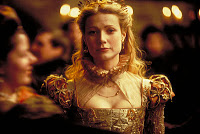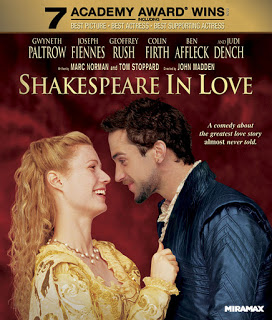About once a year or so I get stuck in a rut where, for a variety of reasons, Mr. Shakespeare takes a backseat. You may have noticed the site not being updated as frequently as it has in the past. For that, I apologize. I’m trying to fix that. It’s just that, for the moment, my heart’s not in it. And I hate that. If your heart’s not in something then quite literally anybody can write on any topic, because they aren’t personally invested in the quality of the outcome. I’ve never been that guy.
So, along with my semi-yearly rut comes my semi-yearly reset where I try to get my head back in the game. Spring’s a good time to do that.
I think we can all agree that the topic of “Shakespeare” is a pretty deep one. Infinite, even. We’ve been talking about it for 400 years and we’re not slowing down. You can, easily, devote your full time life to the topic. Maybe people do.
Alas, I don’t. It’s never been my lot in life. I’m neither an academic nor a theatrical type. My relationship with Shakespeare is an entirely personal and voluntary one.
Every now and then I like to look at the big picture and then focus in a bit. I have to realize that I can’t encompass the whole thing. Once upon a time I was the only Shakespeare blog out there. Now I’m bombarded daily by dozens of sites covering dozens of angles on dozens of stories, and I can’t keep up. I have to pick what I want to talk about. Which means I have to take a step back and look at what’s most important to me.
Hence my question. What is it about Shakespeare that you love most? No fair saying “All of it.” Pretend, if you must, that you’re doing your graduate thesis. You have to pick a topic. Maybe it’s the history and politics of the period that you love most, and you search Shakespeare’s works for clues to that topic. Maybe it’s the poetry, and you’ll argue for hours over why a certain line ends on an unstressed syllable and what that means for what Shakespeare was trying to say.
For me I guess you could say that it’s about the psychology of the characters. Yesterday a coworker told me how he was trying to help a teenage relative study the “To be or not to be” speech, and how she just plain didn’t get it, how she had to slice and dice it up into pieces because she was running to the glossary for every other word. And all I could think to say to be helpful was, “To understand that speech, you have to put yourself in Hamlet’s place and understand what he’s feeling, and then it will start to make more sense, even if you don’t technically understand every single word.”
This is also why I teach Shakespeare to my kids the way that I do, by constantly taking it from the angle of the character – “Here’s this character, here’s what happened to him, here’s what he thought and felt about it, and here’s what he did about it.”
There’s a bunch of reasons for this. One obvious one is that I can have an opinion on this level, and back it up. I can’t dissect syllables and compare editorial punctuation differences. I know that those things go to the big picture, no question. I know that you can get a great deal of character info about Lady Macbeth based on how you choose to punctuate her “We fail!” line. I’m ok with that. I’m ok with going back and changing “here’s what she thought and felt about it” to “here’s one way to interpret how she thought and felt about it.” That’s one of the ways I get an infinite amount of stories out of it. Same things happened to the same people, but the deeper you look, the more ways you can find to spin it.
Another obvious reason is that I think this is the best way to teach kids. I’m not going on another diatribe about this, we’ve covered the topic frequently. I’ll just say that I am living the experiment of demonstrating that even a 3 yr old can understand what happens in Hamlet or Romeo and Juliet. If they can then get a 10+ year headstart on “going deep” by the time they get to high school? Imagine how far along they’ll be.
I was about to write some more about how this also ties into the timelessness of Shakespeare and how still to this day you can have a My Own Private Idaho or a Lion King and
have people recognize them as Shakespeare without any original text, because Shakespeare drew the roadmap for who those characters are and what they do. But this is getting long and the day job calls.
So, I’ll let others talk. Given an infinite subject like ours, where’s your focus? What do you love most?




